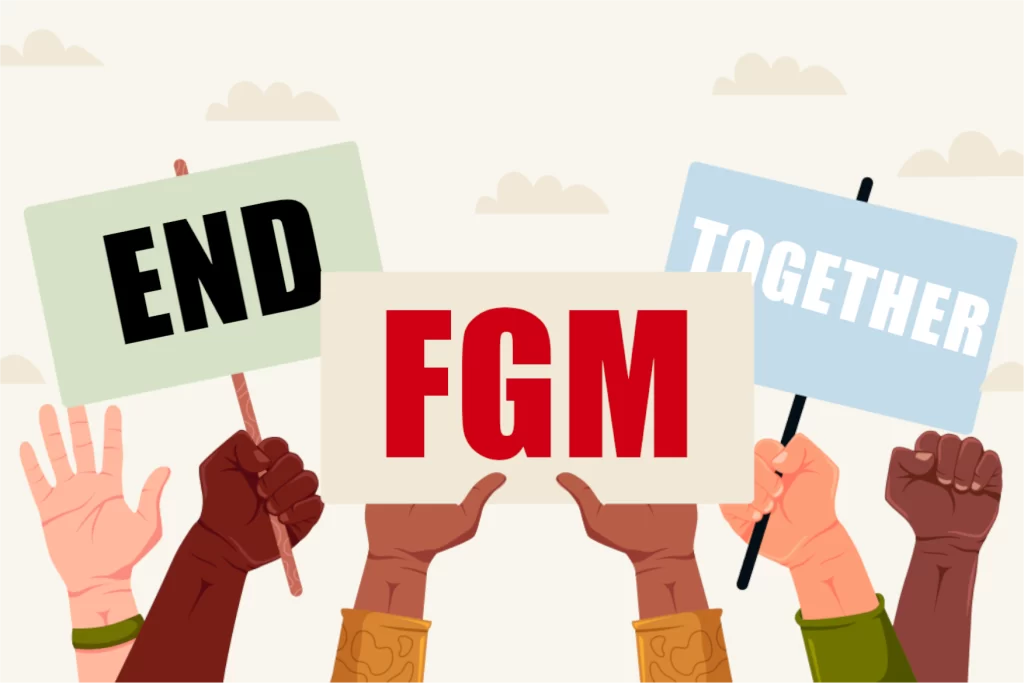The social dynamics driving female genital mutilation are intrinsically. gender-based, and the practice is driven by – and reinforces – norms that devalue girls. Yet, despite its patriarchal origins, the practice is not sustained by men alone. In many countries, men are just as likely as women to oppose the practice, still, the potential influence of men in eliminating female genital mutilation is far from being realized. Men can play a pivotal role – whether as community members shaping societal expectations, as future husbands identifying qualities they prize in a partner, or as fathers welcoming daughters into the world and making the crucial decision of whether to continue the practice into the next generation. Boys and men can, and should, exert their influence in ending female genital mutilation.

Raising Awareness:
One of the primary roles men can play in ending FGM is raising awareness within their communities. Men, often holding positions of authority and respect, can use their influence to educate others about the physical and psychological consequences of FGM. By engaging in conversations and challenging prevailing misconceptions, they can help change societal attitudes towards this harmful
Advocacy and Policy:
Men can also become advocates for policy changes that criminalize and actively discourage FGM. By leveraging their influence in local, national, and international forums, men can push for legal measures that protect women and girls from undergoing FGM. Additionally, they can collaborate with governmental and non-governmental organizations to implement and enforce these policies effective.

Providing Emotional Support:
Men can play a crucial role in providing emotional support to women and girls who have undergone FGM or are at risk. By fostering an environment where survivors feel safe to share their experiences, men can contribute to the healing process and empower these individuals to speak out against the practice. Emotional support from male family members and community leaders can be a powerful catalyst for change.
Education and Empowerment:
Empowering men with knowledge about the harmful consequences of FGM is fundamental to their involvement in ending the practice. Through educational programs and workshops, men can gain a deeper understanding of the physical, emotional, and social impact of FGM on women and girls. Armed with this knowledge, they can actively work towards challenging and transforming societal norms, fostering a collective commitment to ending FGM.

While the fight against Female Genital Mutilation requires a collective effort, the active involvement of men is indispensable. By assuming roles as educators, advocates, supporters, and change agents, men can contribute significantly to the eradication of FGM, fostering a future where the rights and well-being of women and girls are prioritized and protected.




